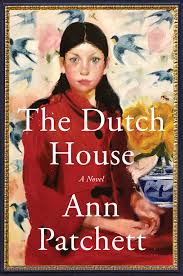Chapter 16
byChapter 16 presents a deeply emotional and layered exploration of family, reconciliation, and the inescapable reality of mortality. The chapter begins with Maeve’s sudden heart attack, which serves as a stark wake-up call for Danny, forcing him to confront both his fears of loss and the unresolved pain of their past. Despite his medical training, the experience of watching his sister in such a vulnerable state is profoundly unsettling. Jocelyn’s past advice about staying calm in times of crisis echoes in Danny’s mind, reminding him of the importance of composure in moments of uncertainty. However, this test of endurance is made even more complex by the unexpected return of their long-absent mother, whose sudden reappearance stirs old wounds rather than offering immediate comfort. Her presence at the hospital is a shock, disrupting the delicate balance of emotions Danny and Maeve have carefully maintained over the years.
Maeve’s condition not only highlights the fragility of life but also brings long-standing family tensions into sharp focus. Danny’s immediate reaction to their mother’s presence is a mix of disbelief, resentment, and confusion, as he struggles to understand why she has chosen to return now, after being absent for so many years. He recalls the painful memories of abandonment, particularly how he and Maeve had to rely on each other for support while their mother was absent from their lives. Her decision to return at such a critical moment seems almost cruel, reawakening the childhood pain that Danny had long tried to suppress. Meanwhile, Maeve’s reaction to their mother’s presence is strikingly different; though she carries the same wounds, her demeanor suggests a willingness to engage, perhaps even a subconscious longing for reconciliation. While Danny remains guarded and skeptical, Maeve seems to entertain the possibility of repairing their fractured relationship, emphasizing how people process trauma and forgiveness in vastly different ways.
The chapter also delves into the theme of mortality, an unavoidable reality that looms over both Maeve’s health crisis and Danny’s internal struggles. Maeve’s brush with death forces Danny to confront the possibility of life without her—a thought that is both terrifying and deeply unsettling. Although his medical background has conditioned him to understand illness and mortality in a clinical sense, he finds himself overwhelmed by the emotional weight of the situation. He reflects on how fleeting time truly is, questioning whether he has spent too much of his life holding onto anger rather than embracing the possibility of healing. Maeve’s hospitalization is not just a test of his resilience but a moment of reckoning, urging him to reassess his relationships and determine whether he has the capacity for forgiveness. His conflicting emotions about his mother’s return mirror the broader internal struggle between choosing to remain anchored in the past or allowing himself to move forward.
Beyond the immediate tension between Danny and his mother, the narrative explores how familial bonds are shaped by both history and present choices. The Dutch House, which has long served as a symbol of both security and loss in Danny and Maeve’s lives, lingers in the background as an ever-present reminder of the past. The house represents the childhood they lost, the relationships that were strained, and the unresolved grief that continues to influence their decisions. Danny questions whether he and Maeve will ever truly be free from the past or if they are doomed to carry these burdens indefinitely. Their mother’s return complicates this question further, as her presence forces them to reevaluate what family means beyond the pain they have endured. In some ways, the reunion offers an opportunity for healing, though Danny remains uncertain whether he is ready to embrace it.
The chapter ultimately paints a vivid picture of a family at a crossroads, grappling with the weight of history while navigating the realities of the present. Danny’s resistance to reconciliation with his mother is juxtaposed with Maeve’s more open-hearted approach, illustrating the many ways people process loss, grief, and the possibility of forgiveness. The raw emotions captured in their interactions make this chapter a powerful meditation on the complexities of familial love, demonstrating that the path to healing is rarely linear. As Danny stands between the past and the future, he is forced to question whether he will allow himself to let go of old wounds or if he will continue to carry them, even at the cost of his own peace. The unanswered questions left lingering by the chapter suggest that while healing is possible, it requires a conscious choice—one that Danny may not yet be ready to make.


